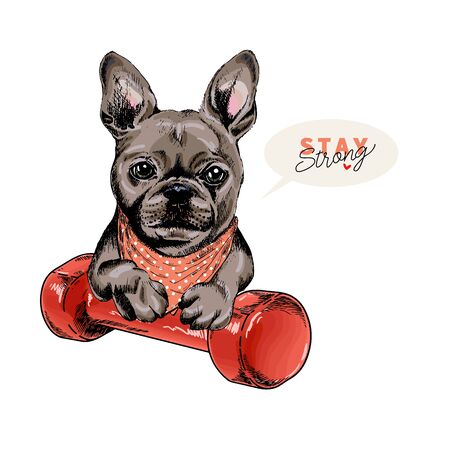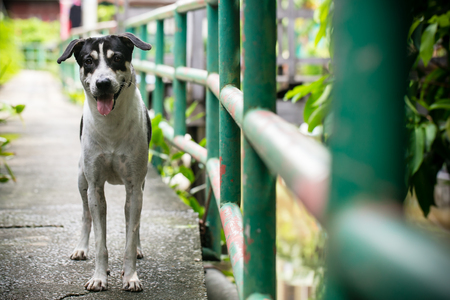Understanding British Dog Adoption: An Introduction
Dog adoption in Britain is a heartfelt journey that reflects the nation’s deep-rooted respect for animal welfare and community spirit. For many Britons, giving a rescue dog a new start is not just about acquiring a pet, but about extending compassion and embodying social responsibility. Over the years, adoption has become more than an individual act—it’s part of a wider movement that shapes how society views animals and their place within our homes.
The UK is renowned for its progressive approach to animal rights, underpinned by laws such as the Animal Welfare Act 2006. This legal framework ensures that adopted dogs are protected and that prospective owners are prepared for the lifelong commitment involved. British values—like kindness, fair play, and respect—are woven into every stage of the process, from application to integration into a loving home.
Adopting a dog is also seen as a practical way to combat overpopulation in shelters and reduce the number of stray animals. It resonates with a sense of duty towards vulnerable beings, mirroring the UK’s broader ethos of caring for those in need. Community involvement is prominent, with local charities, rescue centres, and even neighbours playing key roles in supporting successful adoptions.
The table below offers an at-a-glance overview of why dog adoption holds such significance in British society:
| Aspect | Societal Importance | British Values Reflected |
|---|---|---|
| Animal Welfare | Ensures ethical treatment and protection of dogs | Kindness & Responsibility |
| Community Engagement | Encourages support through volunteering and donations | Solidarity & Compassion |
| Shelter Overcrowding | Helps reduce numbers of homeless animals | Practical Generosity |
| Pet Ownership Education | Promotes informed and responsible guardianship | Respect & Fairness |
This introduction sets the stage for understanding not only the practicalities but also the profound meaning behind adopting a dog in Britain—a decision shaped by law, culture, and an enduring commitment to care.
Legal Requirements for Dog Adoption
Adopting a dog in Britain is a heartfelt journey, but it also involves meeting certain legal obligations to ensure the welfare of your new companion. Understanding these requirements not only keeps you compliant with UK law, but also ensures your adopted dog can settle into their forever home safely and securely.
Microchipping: A Legal Must
In the UK, microchipping your dog is mandatory. According to The Microchipping of Dogs (England) Regulations 2015, all dogs over eight weeks old must be microchipped and registered with up-to-date contact details. This simple step helps reunite lost pets with their owners and holds adopters accountable for their animals wellbeing.
Adoption Paperwork
Proper documentation is essential during the adoption process. Reputable rescue centres will require you to complete detailed forms about your lifestyle, previous experience with pets, and preferences. They will provide you with an adoption agreement outlining your responsibilities and the dogs medical history, vaccination status, and neutering information.
Home Checks: Ensuring Suitable Environments
Most British rescue organisations conduct home checks before approving an adoption. This involves a visit to your home by a representative who assesses whether the environment is safe, secure, and suitable for a new dog. Home checks are an opportunity to discuss any concerns and receive guidance on preparing your space for a canine friend.
Summary of Key Legal Requirements
| Requirement | Description | Legal Reference |
|---|---|---|
| Microchipping | Mandatory for all dogs over eight weeks old; contact details must be kept up to date | The Microchipping of Dogs (England) Regulations 2015 |
| Adoption Agreement | Written contract provided by rescue centre outlining rights and responsibilities | Animal Welfare Act 2006 (general welfare) |
| Home Check | Assessment of living environment by rescue centre staff or volunteers | Rescue centre policy (best practice) |
| Rescue Centre Standards | Centres must comply with local council regulations regarding animal welfare, cleanliness, and care standards | Animal Welfare (Licensing of Activities Involving Animals) (England) Regulations 2018 |
Caring Beyond Compliance
Navigating these legal steps is not just about ticking boxes—its about demonstrating your commitment to giving a rescue dog the safety, love, and stability they deserve. By embracing these requirements, you become part of a compassionate community dedicated to improving the lives of animals across Britain.

3. The Adoption Process: Step by Step
Adopting a dog in Britain is a heartfelt journey, marked by both anticipation and responsibility. The process is thoughtfully structured to ensure the best match between adopter and canine companion, prioritising the welfare of every dog in need. Here’s a step-by-step guide to what you can expect when adopting a dog from a British shelter or rescue organisation:
Initial Enquiry and Application
Your journey begins with exploring local shelters or reputable rescue organisations online or in person. Once you’ve identified potential dogs, you’ll be asked to complete an adoption application form. This form collects information about your living situation, lifestyle, experience with pets, and what you’re looking for in a dog.
Assessment and Home Check
To ensure a suitable match, staff may conduct an interview or phone conversation to discuss your expectations and readiness. A home visit is often arranged to check for secure fencing, safe spaces, and family compatibility—this step underscores the UK’s commitment to responsible pet ownership.
Meeting Your Potential Dog
If your application proceeds positively, you’ll be invited to meet dogs that fit your profile. This introduction often takes place at the shelter, giving you a chance to interact and see if there’s a natural bond.
Typical Steps in the Adoption Process
| Step | Description |
|---|---|
| Application Submission | Complete an application online or at the shelter |
| Assessment/Interview | Discuss your lifestyle and expectations with staff |
| Home Visit | Shelter representative inspects your living environment |
| Dog Introduction | Meet potential matches at the shelter |
| Decision & Agreement | If all goes well, sign an adoption agreement outlining responsibilities |
| Collection Day | Bring your new companion home, often after providing proof of identification and paying the adoption fee |
The Final Steps: Bringing Your Dog Home
Once approved, you’ll sign an adoption contract detailing your responsibilities as a new owner. Shelters typically provide initial vaccinations, microchipping, spaying/neutering, and sometimes starter packs of food or essentials. On collection day, staff will offer guidance on settling your new friend into their forever home—a moment filled with hope and promise for both adopter and adopted.
4. Costs Involved in Adopting a Dog
Adopting a dog in Britain is a heartwarming commitment, yet it’s essential to be aware of the financial responsibilities involved. The process isn’t just about paying an adoption fee—ongoing care and unexpected costs are part and parcel of responsible pet ownership. Here, we outline what prospective adopters can expect to budget for, as well as considerations unique to life with dogs in the UK.
Adoption Fees
Most reputable rescue centres and charities charge an adoption fee, which helps cover vaccinations, microchipping, neutering, and basic veterinary checks. This fee varies depending on the organisation, the age of the dog, and sometimes the breed.
| Type of Organisation | Typical Adoption Fee (£) |
|---|---|
| Local Council Shelters | £70-£150 |
| National Charities (e.g., RSPCA, Dogs Trust) | £150-£200 |
| Breed-Specific Rescues | £100-£250 |
Ongoing Pet Care Costs
The initial adoption fee is only the beginning. Responsible ownership means budgeting for food, routine vet care, insurance, and more. The following table provides an overview of typical monthly expenses for a medium-sized dog in Britain:
| Expense | Estimated Monthly Cost (£) |
|---|---|
| Quality Food | £25-£45 |
| Pet Insurance | £20-£40 |
| Flea/Worm Treatments | £5-£10 |
| Toys & Treats | £10-£20 |
| Routine Vet Visits | £10-£15 (averaged) |
Additional Considerations Unique to UK Pet Ownership
- PET INSURANCE: While not legally required, pet insurance is highly recommended due to the high cost of veterinary care in the UK.
- Council Dog Licences: Most areas no longer require traditional licences, but microchipping is mandatory.
- Holiday Care: If you travel frequently, factor in boarding or pet-sitting costs—these can add up quickly.
- Lead Laws & Public Spaces: Some parks require dogs to be kept on leads; fines may apply if not adhered to.
- Puppy Training Classes: Especially recommended for first-time owners and can range from £50–£120 for a course.
A Compassionate Investment
The true cost of adopting a dog in Britain extends beyond pounds and pence—it’s an ongoing investment in a loyal companion’s wellbeing. Understanding these financial commitments ensures that you can offer your new friend a happy, healthy life filled with love and security.
5. Preparing for Your New Canine Companion
Welcoming a rescue dog into your home is a heartwarming act, but it requires thoughtful preparation to ensure both you and your new friend settle in smoothly. Here’s how British families can get ready for this meaningful journey.
Creating a Safe and Comfortable Environment
Before your dog arrives, make your home safe and inviting. Remove hazards like loose wires, small objects, and toxic plants such as daffodils or foxgloves common in UK gardens. Ensure fences are secure and garden gates latch properly—British weather can make ground soft, so check for gaps regularly.
Essential Supplies Checklist
| Item | Recommended British Option |
|---|---|
| Bedding | Cosy, washable bed suitable for the UK climate |
| Food & Water Bowls | Ceramic or stainless steel for durability |
| Lead & Collar | ID tag with owner details (as required by UK law) |
| Toys | Sturdy options for chewing and interactive play during rainy days |
| Pet Insurance | Consider leading UK providers (e.g., Petplan) |
Preparing Your Family
Involve all household members in the preparation process. Discuss routines such as walking (rain or shine!), feeding times, and quiet zones where your dog can retreat if they feel overwhelmed. Remind children about gentle handling and respecting the dog’s space—particularly important in those first few weeks of adjustment.
Socialisation: The British Way
The UK offers many opportunities for socialisation—from local parks to dog-friendly pubs. Gradually introduce your dog to new experiences, starting with short walks around your neighbourhood and building up to busier environments like farmers’ markets or village fêtes. Always use a lead until you are confident in their recall; even then, stick to designated off-lead areas as per British bylaws.
Integration Tips Unique to Britain
- Register with a local vet—many offer free initial health checks for rescues.
- If using public transport, familiarise your dog with buses or trains gradually; most operators welcome dogs but check specific regulations.
- Join a local dog training group or attend “puppy parties” offered by many UK veterinary practices to help build confidence and good manners.
With patience, understanding, and a dash of British resilience against the rain, your adopted companion will soon feel right at home.
6. Life After Adoption: Support and Welfare
Adopting a dog is just the beginning of a lifelong journey filled with companionship, responsibility, and growth. Once you’ve welcomed your new friend into your home, it’s essential to ensure their long-term wellbeing through ongoing support and local resources available across Britain.
Post-Adoption Support Services
Most reputable adoption centres in the UK provide post-adoption support to help both you and your dog settle in. This can range from advice on behaviour and training to guidance about health care. Charities like Dogs Trust, Battersea, and the RSPCA offer helplines, online resources, and even follow-up visits if needed.
Local Resources for Dog Owners
Integrating your adopted dog into British life is made easier thanks to an array of local resources. From puppy socialisation classes at village halls to community dog-walking groups in city parks, there are many opportunities for you and your companion to connect with others. Your local council’s website often lists nearby dog-friendly parks, veterinary surgeries, and responsible ownership courses.
Useful Contacts Table
| Resource | Description | Contact/Website |
|---|---|---|
| Dogs Trust | Training, behaviour advice & rehoming support | dogstrust.org.uk |
| Battersea Dogs & Cats Home | Post-adoption advice & events | battersea.org.uk |
| RSPCA | Welfare information & community services | rspca.org.uk |
| The Kennel Club UK | Dog-friendly places & responsible ownership tips | thekennelclub.org.uk |
Ensuring Long-Term Wellbeing
Your commitment doesn’t end once your dog comes home. Regular vet check-ups, vaccinations, and preventive treatments (such as flea and worm control) are vital. The UK also encourages microchipping, which is a legal requirement. Beyond physical health, invest time in mental stimulation—training sessions, toys, and quality walks across the British countryside or your local park make all the difference.
A Community of Care
The journey of adoption weaves you into a wider community of animal lovers. Don’t hesitate to reach out to fellow dog owners for advice or companionship—Britain’s love for dogs runs deep, making it easy to find friendly faces at every corner. By utilising these supports and embracing responsible ownership, you’re ensuring that your four-legged companion not only finds a home but also flourishes in it for years to come.


